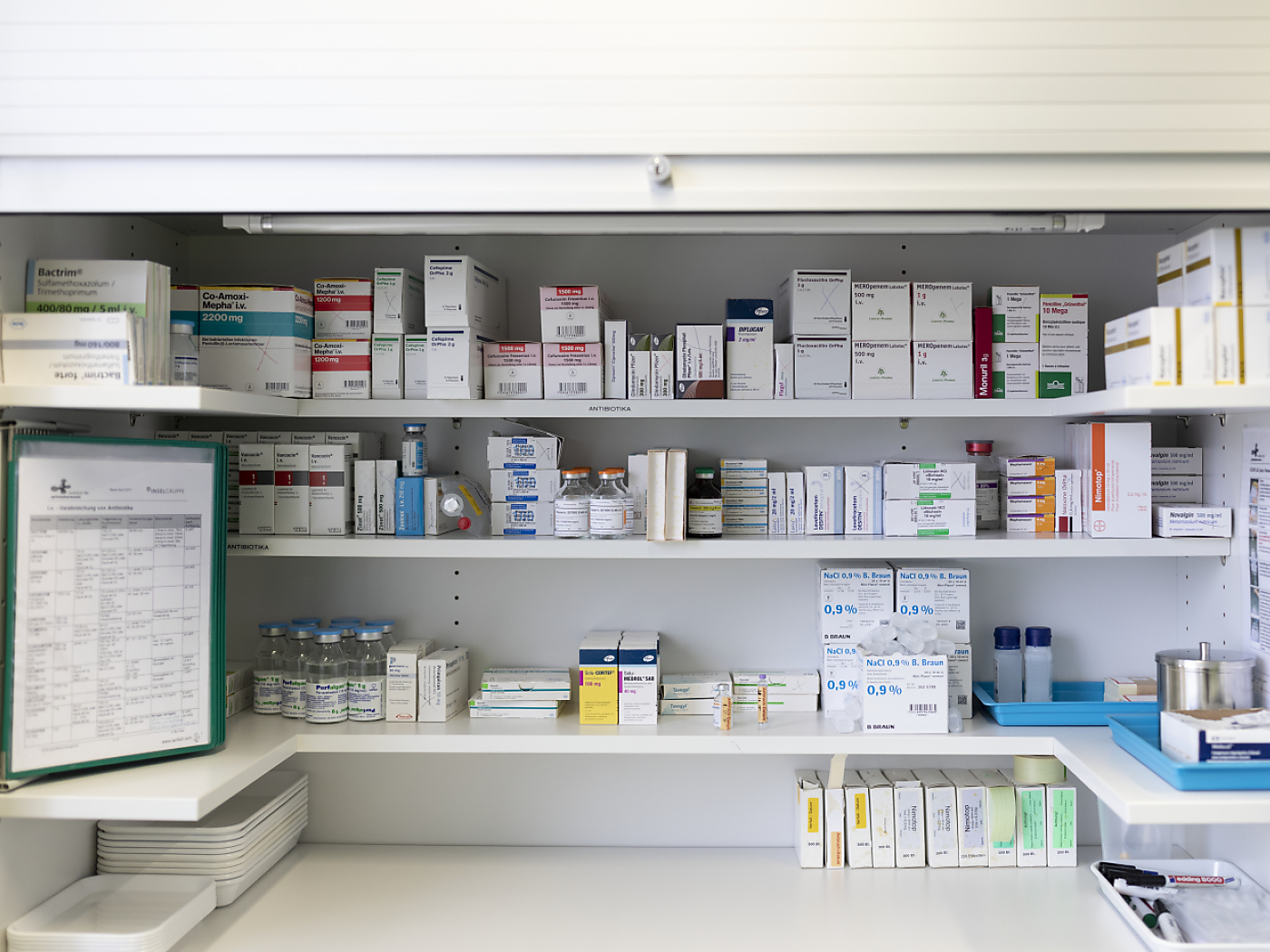
Antibiotic resistance drug shows weakness: Swiss research

A Swiss research team is dampening expectations for drugs that are tipped combat antibiotic resistance.
+Get the most important news from Switzerland in your inbox
The recently developed molecule xeruborbactam could help against antibiotic resistance in certain bacteria, but not all, as a new study from the University of Freiburg (Unifr) shows.
Unifr announced on Wednesday that the study puts earlier, more optimistic assessments into perspective. Despite this, the university described the molecule as a “stage victory in the fight against antibiotic resistance”.
+ Swiss government wants to tackle antibiotic resistance
Some bacteria produce protective enzymes, so-called metallo-β-lactamases, to protect themselves against certain antibiotics. This makes antibiotics ineffective against these bacteria. To solve this problem, the pharmaceutical industry has recently developed the molecule xeruborbactam. This molecule blocks the effect of the protective enzymes and can restore the effect of antibiotics.
“Not yet at the finish line”
The Fribourg researchers have now investigated the effectiveness of this molecule against two resistant bacteria circulating in Switzerland: Escherichia coli, a major cause of urinary tract infections, and Pseudomonas aeruginosa, which can cause pneumonia.
The results were published in the journal Antimicrobial Agents and Chemotherapy.
The drug was found to be effective against E. coli bacteria. However, according to the researchers, it was significantly less effective against the bacterium Pseudomonas aeruginosa.
“These bacteria have an efficient defense mechanism: a kind of pump that not only transports the antibiotics but also the new inhibitor out of the cell before they can reach their targets,” explains study leader Laurent Poirel.
Contrary to the researchers’ expectations, certain strains of this bacterium were even resistant to the effect of the new drug.
“We have not yet reached our goal and the continuous search for even more effective molecules remains crucial,” concluded Poirel.

More
Rise in use of antibiotics in Switzerland
Translated from German by DeepL/mga
This news story has been written and carefully fact-checked by an external editorial team. At SWI swissinfo.ch we select the most relevant news for an international audience and use automatic translation tools such as DeepL to translate it into English. Providing you with automatically translated news gives us the time to write more in-depth articles.
If you want to know more about how we work, have a look here, if you want to learn more about how we use technology, click here, and if you have feedback on this news story please write to english@swissinfo.ch.

In compliance with the JTI standards
More: SWI swissinfo.ch certified by the Journalism Trust Initiative





























You can find an overview of ongoing debates with our journalists here . Please join us!
If you want to start a conversation about a topic raised in this article or want to report factual errors, email us at english@swissinfo.ch.